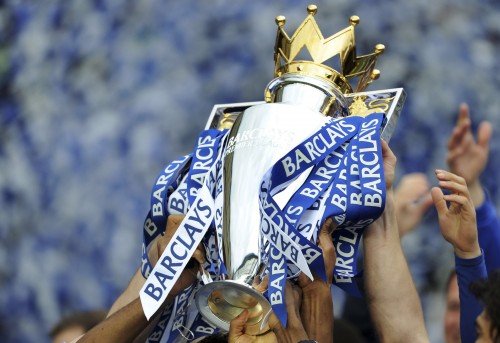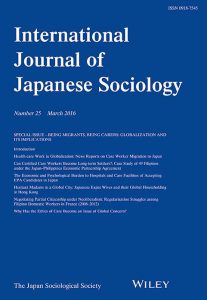Is England's World Cup failure symptomatic of Capitalism's malfunction?
Football is England’s national sport. It’s played in every city, town and school in the country. The English Premier League is the richest league in the world. For millions of English fans who contribute this wealth, watching football either live or on TV is effectively a costly tax on their devotion to their club. Why then does England lose to smaller nations with fewer players and less money to invest in talent?
Britain is the world’s sixth largest economy and a global finance centre, home to 104 billionaires. According to neoliberal economic theory this money should be percolating down through our social strata. For example, if a super-rich oligarch buys a multi-occupancy property in London, the theory is, when he develops the property he generates jobs for an army of architects, builders, interior designers and estate agents whose own economic spending power is enhanced. Similarly, while the oligarch’s in town hoteliers, restaurateurs, bar-owners, personal trainers, personal shoppers all benefit from his taste for luxury. London’s status as a hub for the financial elite should be benefitting everyone. Yet why does the UK’s richest five families have a greater combined wealth than the poorest twenty per cent and why are 6.7 million of the 13 million people in poverty in the UK are in a family where someone works?
The answer to all these questions is the same, wealth doesn’t trickle-down. The winner-takes-all Premier League is a metaphor for Britain’s inequality. Less than 1% of the £5.6bn the Premier League receives from TV revenue alone is transferred to grass-roots football. Player wages has risen to £2.2bn a year; this level of financial inducement means the Premier League attracts the best players and the richest owners from around the world; the money from the Premier League is, in Urry’s (2014) phrase “offshored”.
The sums are so far removed from the cost of living that they’ve become meaningless. As Yaya Touré showed when, despite being on £240k a week, he said he’d leave Manchester City because his birthday cake was disrespectfully small; a footballers wage figure is only one of many measures of respect. Premier League teams also acquire exceptional children before they become mature financial assets and, unless they are able to challenge the world’s elite for a first place team place, more often than not, as adults they are released to lower division clubs. The result is fewer than 1 in 3 players is the Premier League is qualified to play for England so the England manager has around 70 players to pick from many of whom do not play regularly but are instead rotated within a squad.
Thomas Piketty’s popular and influential Capital in the Twenty-First Century argues similarly money isn’t trickling down through our economy. Instead the international super-rich accumulate more wealth from saving and investing these savings which generate, for them, further income. The one-percenters, Piketty tells us, are not putting their wealth to productive use but offshoring it by leaving it in tax havens where there’s an estimated $21trillion, enough to wipe-out Africa’s debt. He argues we have to get used to a rentier, patrimonial elite that is seeking consolidate itself; pass its wealth to its offspring rather than risk it. This, for him, explains stagnant social mobility in the UK. A common neoliberal justification for inequality in a market economy is that income distribution merely reflects productive contributions and so is based on natural justice. If Piketty’s right, alternative myths are required.





1540-6237/asset/SSSA_Logo-RGB.jpg?v=1&s=c337bd297fd542da89c4e342754f2e91c5d6302e)
1099-1328/asset/dsa_logo.jpg?v=1&s=e4815e0ca3064f294ac2e8e6d95918f84e0888dd)
Nice piece, and I agree with it. Anthony King (from Essex Uni) recently discussed ‘Why england fail’ (at football) on BBC’s Thinking Allowed. As well as the economic points you make here he also adds that English players are far less likely to play abroad compared to other european players. I would argue that this is true of Brits in general, who, because of language, laziness and general parochialism, don’t want to work in foreign countries. In football, our national team suffers as a result.
http://www.bbc.co.uk/programmes/b040j023
Thanks Roger, I’ll check that out. My brother works in sports education – he’s struck by how little is invested in coaching youngster’s technical skills comapared to Spain for example. However, it’s puzzling that given the collective value of the England team on the open market they should be thrashing teams whose players couldn’t make the cut in the Premier League. I watched players unable to complete passes and moves they routinely perform for their clubs. This suggests some form of performance anxiety. Also, the English team lacked the fast, dynamic movement, especially off the ball, that characterises successful teams in this tournament.
Huw, your last point was well observed by Robbie Savage after the Costa Rica, “teams
Okie Costa Rica seem to grow intro their shirts, whereas our lads tend to shrink.” This might be partly explained by the fact that the last FA Licensed National Coaches Conference theme focused on creativity and imagination. The current predominant football philosophy that such learning opportunities are attempting to reverse is one of command and control that stifles individual decision making under pressure.